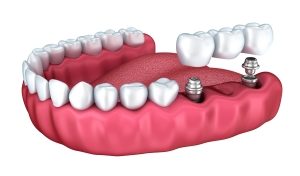Are You a Candidate for Dental Implants?

If you have one or more missing teeth, dental implants could be a solution for you. Dental implants look and feel like natural teeth and can restore your smile while protecting you from the oral health problems associated with missing teeth. Schedule a consultation at a dentist’s office near Glen Ellyn to determine if dental implants are the right choice for you. Here are some of the things your dentist will consider when deciding if you are a good candidate for dental implants.
You Have Sufficient Jaw Bone
For dental implants to be successful, you must have sufficient bone in your jaw to support them. If you have bone loss, implants may not be right for you. However, in some cases, dentists can perform bone grafts to build up your jaw and make it strong enough for implants. Your dentist will determine if this is a possibility for you before deciding whether to proceed with dental implants.
You Don’t Have Gum Disease
Untreated gum disease can make it difficult for your implants to fuse properly with your jaw and remain stable. As it progresses, gum disease can also cause bone loss, further tooth loss, and changes to your bite, all of which can affect any implants you have placed. Having gum disease doesn’t mean that you cannot get dental implants, but your dentist will likely treat your disease before beginning the dental implant process.
You Don’t Want to Change Your Diet
For people who wear dentures, one of the biggest adjustments is the changes they have to make to their diets. With dentures, there are several foods you have to avoid to prevent damage and slippage, including many hard, crunchy foods and sticky foods. Dental implants, on the other hand, function just like your natural teeth. You don’t have to avoid any foods, and you don’t have to change your oral hygiene routine. A tooth implant can be brushed and flossed as normal and can withstand the same amount of chewing pressure as your natural teeth.
